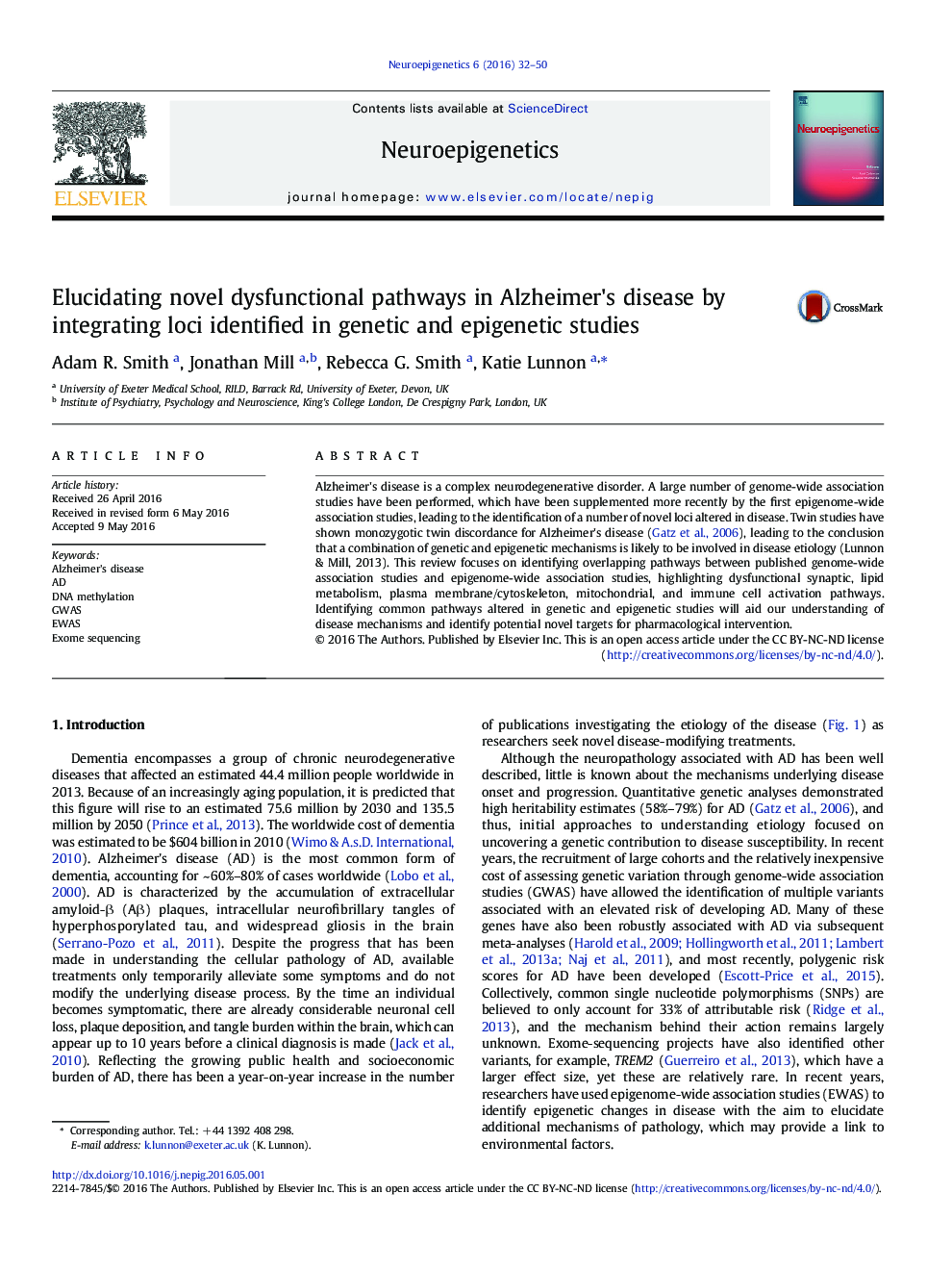| Article ID | Journal | Published Year | Pages | File Type |
|---|---|---|---|---|
| 2823955 | Neuroepigenetics | 2016 | 19 Pages |
Alzheimer's disease is a complex neurodegenerative disorder. A large number of genome-wide association studies have been performed, which have been supplemented more recently by the first epigenome-wide association studies, leading to the identification of a number of novel loci altered in disease. Twin studies have shown monozygotic twin discordance for Alzheimer's disease (Gatz et al., 2006), leading to the conclusion that a combination of genetic and epigenetic mechanisms is likely to be involved in disease etiology (Lunnon & Mill, 2013). This review focuses on identifying overlapping pathways between published genome-wide association studies and epigenome-wide association studies, highlighting dysfunctional synaptic, lipid metabolism, plasma membrane/cytoskeleton, mitochondrial, and immune cell activation pathways. Identifying common pathways altered in genetic and epigenetic studies will aid our understanding of disease mechanisms and identify potential novel targets for pharmacological intervention.
